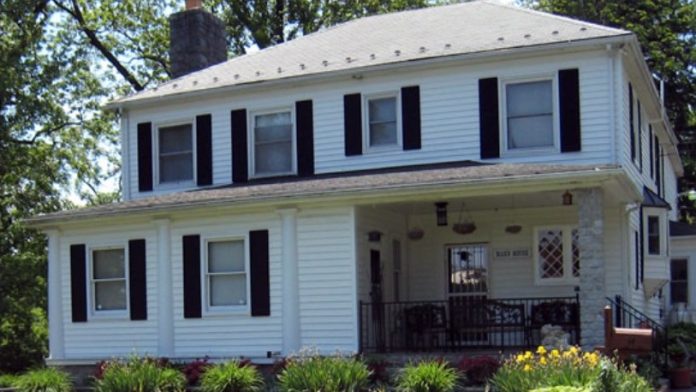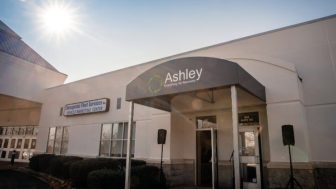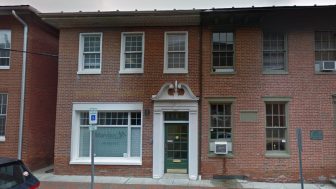Mann House Inc
14 Williams Street
Bel Air, MD 21014

About Mann House Inc
Mann House in Bel Air, Maryland, is a nonprofit, men’s only private halfway house for adults aged 18 and older recovering from mental and behavioral issues, including substance abuse issues. Weekly rent is $150, and per month residents will pay $600.
Founded in 1971, Mann House has been serving its local community for over 50 years now. Unfortunately with it being an old building, this house is not currently accessible to disabled or physically handicapped individuals, or those with poor mobility. This house is also not equipped to support dual diagnosis individuals and is strictly designed to support those who are chemically dependent or relapsing. Residents here must have addiction as a primary diagnosis as per the American Society of Addiction Medicine’s guidelines (ASAM), and they must have recently completed residential treatment for a minimum of 21-28 days with success. Residents must transfer directly from their former residential treatment to this house.
The focus at Mann House is on individuals who struggle with chronic relapse issues. The aim is to help free them from the frustrating cycle of relapse that’s been holding them back in making progress. With this in mind, residents must be motivated to make positive change in their lives and fully commit to the program. This involves a mixture of 12 Step programming, daily support meetings, sponsorship, counseling, proper diet and exercise, spiritual introspection and of course lots of hard work.
With this in mind, all residents must be willing and able to work up to 40 hours per week. One of the first steps here is to find employment within the first two weeks of residency. Then, residents are encouraged to establish a personal budget and savings plan as an element of the life skills they will pick up to support them when they eventually transition to independent living. The minimum stay here is six months and can last up to a year or longer. On average, residents stay for around seven to nine months.
Amenities
Private drug rehab provides a comfortable, secure environment that allows you to focus on doing the work to get your life back on track. Benefits include a higher staff-to-client ratio, increased one-on-one time with therapists and healthcare providers, private rooms for clients, and customized forms of therapy.
Residential drug rehab provides the comforts of home with the therapeutic support needed to successfully recover. Benefits of an inpatient program include increased safety, a higher success rate, and the time and distance given to focus on recovery. Residential drug rehabs are often the preferred method of treatment, as they can be tailored to meet specific needs, offer focused therapeutic care, and provide the necessary tools to sustain recovery.
Yoga and meditation are great activities to support your recovery process during alcohol or drug rehab. These therapies have been around for centuries, and they are an effective way to improve well-being. Combining addiction treatment, yoga, and meditation can reduce cravings, improve sleep, relieve anxiety and depression, provide stress relief, promote relaxation, support emotional healing, and improve energy levels.
In order to maintain a sense of autonomy, many private rehab facilities offer clients the ability to choose their own private rooms. The privacy and personal space ensure that the recovery process is as comfortable as possible.
Addiction Treatment Programs
During crucial developmental years, addiction can cause cognitive impairment, increase risky behavior, and impair social development. A young adult program in Maryland can help individuals learn to make healthy choices and avoid these downfalls of addiction.
A typical adult program in Maryland offers a private setting for rehabilitation from alcohol or drugs. Treatment often includes group therapy, individual counseling, and family support and may occur in a residential facility or through outpatient care.
If you desire to discontinue alcohol use, alcohol rehab in Maryland can help. Through detox, counseling, and aftercare, these programs can help you break free from alcohol dependence.
Men’s rehab in Maryland helps men recover from substance use disorders and start rebuilding their lives. Therapies focus on men only and their unique needs.
Women’s rehab in Maryland provides an environment where women can step back from daily stresses and distractions to focus on their recovery. The caring, safe surroundings help create positive recovery outcomes.
Opioid rehab in Maryland takes place in a safe, supportive environment that minimizes access to opioids and reduces stressors that trigger relapse. Treatment often begins with medical detox, followed by inpatient rehab that may last 30 to 90 days. Aftercare is provided to help maintain long-term sobriety.
Cognitive behavioral therapists use multiple exercises during cognitive behavioral therapy in Maryland. A combination of imagery-based exposure, behavioral experiments, and thought records can provide effective treatment for addiction and co-occurring disorders.
Once a person becomes addicted to a substance, drug rehab in Maryland is often necessary to overcome that addiction. These programs provide the tools individuals need to manage the physical, mental, and emotional issues involved and begin a successful recovery journey.
Through elderly rehab in Maryland, seniors can find the help they need to overcome addiction. These age-specific rehab programs address substance use disorders, dual diagnosis, and age-related challenges.
Rational emotive behavioral therapy in Maryland states that behaviors, feelings, and thoughts are interconnected. The premise of this therapy is to identify irrational thoughts, so you can experience more positive feelings that lead to healthier behaviors.
Levels of Care
Intervention services are often necessary before treatment at a drug rehab in Maryland can begin. These professional services help you encourage your loved one to get the treatment they need. Support includes intervention facilitation, education about treatment plan options, and guidance in selecting the best program for your loved one.
The most intensive level of care is known as inpatient rehab. It involves living at the facility until you finish your program, receiving extensive individual and group addiction counseling, recovery-focused life skills training, and complementary therapies.
Addiction challenges don’t end after rehab. To maintain good health and sobriety, you’ll need to continue to manage your addiction. Aftercare rehab in Maryland helps you by providing continued access to specialists, counselors, and life coaches for as long as you need them.
A Maryland sober living home is appropriate for those who want to abstain from drugs and alcohol but need a high level of accountability. If you don’t have strong support at home or have been resistant to treatment in the past, this structured environment can provide the support you need to maintain sobriety in the first few months of recovery.
Accreditations
Contact Information
Nearby Treatment Centers

1803 Harford Road
Fallston, MD 21047

4 North Avenue
Suite 306
Bel Air, MD 21014

802 Baltimore Pike
Suite 102
Bel Air, MD 21014

21 West Courtland Street
Bel Air, MD 21014